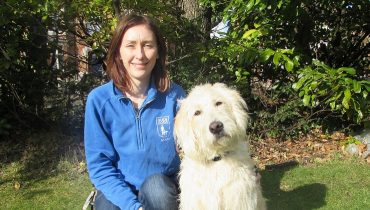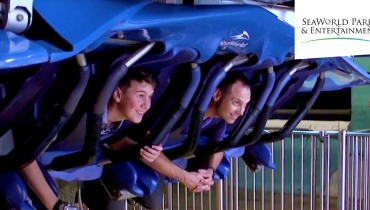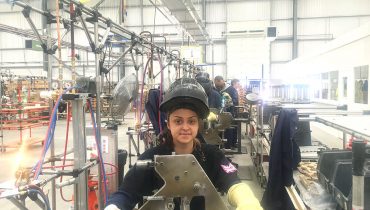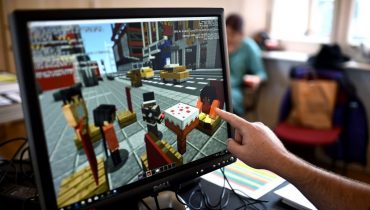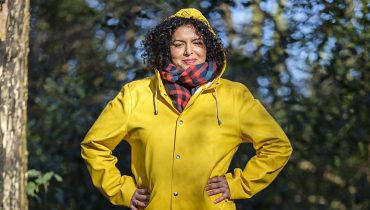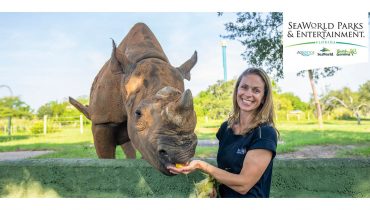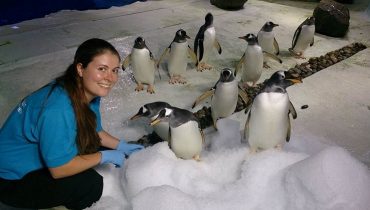 Most First News readers love animals, but Hannah gets to work with them every day! She took time out from shepherding her animals to tell us how she got into her job, and the highs and lows that she goes through.
Most First News readers love animals, but Hannah gets to work with them every day! She took time out from shepherding her animals to tell us how she got into her job, and the highs and lows that she goes through.
What is your name?
Hannah Jackson.
What is your job?
Contract shepherdess. I set up my own shepherding business, and I work across a number of different farms on short and long-term contracts. I work with two border collies that I trained myself. My work is extremely varied and reflects the agricultural calendar, but I mainly work with sheep and cattle. I usually work in Cumbria, but I also work around the whole of the UK at certain times of year.
How did you get your job?
After graduating from university with a BSc (Hons) in animal behaviour, I was on holiday in the Lake District and watched a lamb being born. I instantly knew this was a career I wanted to pursue, working outdoors and with animals all day, every day.
I applied for as many work placements as possible and ended up on a hill farm in Keswick, where I learnt about the land and how to care and farm the stock within it. I worked for free for nine months, swapping work for board and lodgings.
From here I built my knowledge more and more, and began to network with as many local farmers as possible. This then gave me opportunities to expand my work and experience, and my small shepherding business began to grow.
What do you love about your job?
From when I was little I said I would always work with animals and be outside. Farming is the perfect combination of both these things. I don’t feel like I go to work every day, because I love it that much. I love bringing new life into this world. It’s an unbelievable feeling, and I feel genuinely lucky to watch a newborn lamb take its first breath in this world, and to then follow that lamb through its life and care for and nurture it to the best of my abilities.
What’s difficult about your job?
My job can be very demanding, physically and mentally. I can work extremely long hours, and this can involve a lot of manual labour, but I try and keep as fit as possible, in and out my job.
Even after five years I still find it very hard when any of my stock die. Farming is a lifestyle and you invest so much time, effort, love and devotion into your animals that losing them can be tough. But you learn to pick yourself up and concentrate on all the others that need your care and attention.
What skills do you need?
When I first started my journey in agriculture I had absolutely no experience. In fact, I’d never even stepped foot on a commercial farm before. What you do need is determination, commitment and absolute passion for animals and the industry in order to succeed. If you have those things, you will develop the skills as you gain more experience. Just be willing to work hard and prove yourself!
What school subjects are important?
I firmly believe school in general is very important. It gives you a solid base of knowledge, as well as ‘learning to learn’, so to speak. However, science is going to come into play the most in everyday agriculture and can be very useful. Your core subjects such as maths and English will also come into play every day.
Where should young people start if they want to do the job, too?
The best piece of advice I could offer to anyone wanting to work in agriculture or in a career with animals is to get as much experience as possible! Gain experience with as many different animals and in as many different environments as possible.
Exposure is vital in building experience and becoming familiar with an environment.
My work experience is so diverse; for example, I have work experience with sea lions (at Knowsley Safari Park), dairy farming, sheep farming, veterinary practice (small and large animals), newts/bats (at an environmental consultancy business), killer whales (in Canada), and marine bird research. All of these placements I began as a volunteer. It is vital you invest your time wisely, to help build your future as best as possible.
How do you think your job could change in the future?
I believe my job will involve a lot more technology in the future and this is something young people should try and familiarise themselves with. I believe the industry will become a lot more efficient and productive, which may make jobs very competitive. The best thing to do is prepare yourself as best as possible, make yourself stand out from the crowd and show people why you are the person they want to employ.







